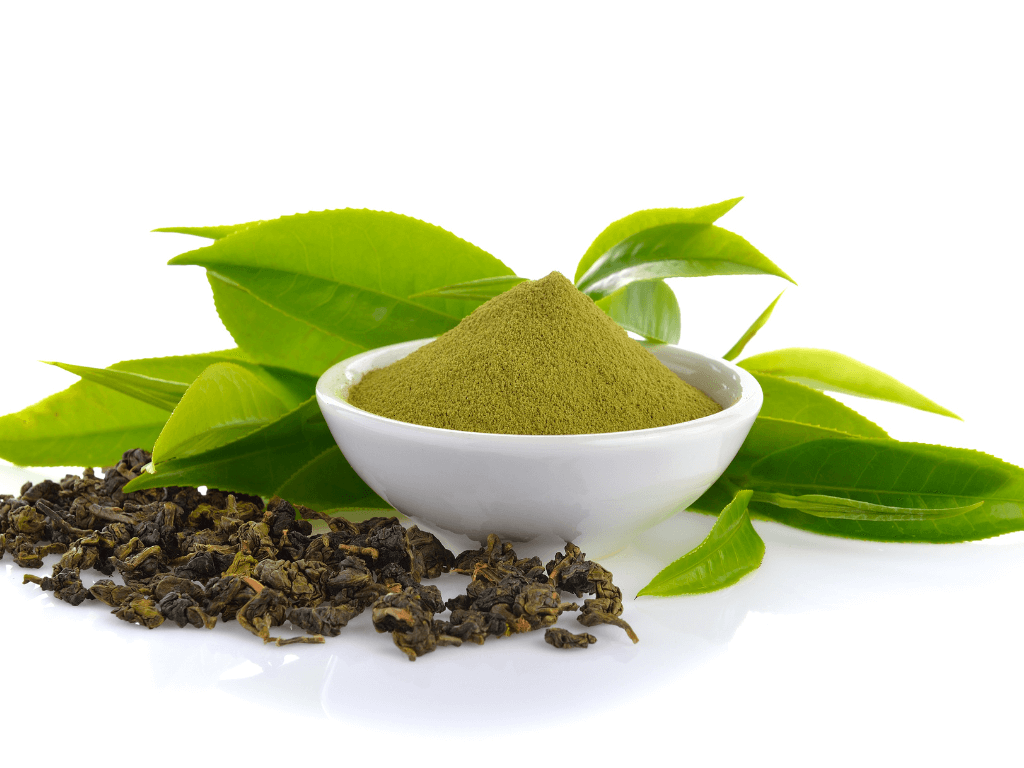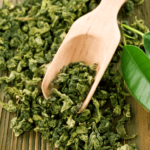Does Green Tea Have Caffeine? A Comprehensive Guide

Does Green Tea Have Caffeine?
Are you a fan of green tea? Have you ever wondered if they contain caffeine? The answer is yes, green teas do contain caffeine, but the amount varies depending on the type of tea and how it is prepared.
In this article, we will explore the origins of caffeine in green teas, how much caffeine they contain, the benefits of caffeine-free green teas, ways to reduce caffeine in your tea, and whether it is safe to drink green tea with caffeine.
So, grab a cup of your favorite green tea, and let's dive in!
Origin Of Caffeine In Tea
Tea has been the topic of centuries-old conversations concerning the origin of its caffeine content. Some theorize that this stimulant is a natural occurrence within the plant, while others claim it is an added element. In reality, caffeine is naturally present in tea plants and is an element of the greenery's self-preservation mechanism. When consumed, it works to invigorate and shield the plant from harm, varying between types of tea and preparation.
The amount of caffeine in tea can be subject to change depending on the region in which it is harvested and the processing involved. For instance, teas grown at higher elevations tend to contain more caffeine than those grown in lower areas. Likewise, teas that undergo more intensive processing will have lesser amounts of caffeine than those that only require minimal processing. Understanding the source of caffeine in tea can assist in making informed decisions when selecting the right type.
To decrease the caffeine content of your tea, there are a few steps to take. You can opt for naturally low-caffeine teas, such as white tea or herbal tea. Additionally, you can reduce the steeping duration to restrict the amount of caffeine extracted from the leaves. Lastly, you can also try decaffeinated tea, which has had many of its caffeine particles removed. Regardless of the option, it is important to remember that all teas contain some caffeine per 8oz.
How much caffeine does green tea contain?
Green tea is one of the most sought-after beverages in the world, renowned for its multiple health benefits. Nonetheless, people query about the caffeine content of green tea. To answer this query, the caffeine content in green tea varies depending on numerous factors.
The level of caffeine in green tea is determined by several elements such as the variety of tea, the processing, and the brewing length. Generally, green tea contains less caffeine than coffee, but more than other types of tea. Typically, a cup of green tea contains about 25-50mg of caffeine, which is much lower than a cup of coffee, which holds up to 200mg of caffeine.
If you are worried about the caffeine in green tea, there are ways to reduce it. One way is to select a decaffeinated version of green tea. Nevertheless, bear in mind that decaffeinated green tea may still contain a small amount of caffeine. Another approach is to reduce the steeping duration. The longer green tea is steeped, the higher the caffeine content. By reducing the brewing time, you can lessen the amount of caffeine in your cup of green tea.
Although green tea has caffeine, it also includes a variety of other beneficial compounds such as antioxidants, making it a healthy drink option. If you are sensitive to caffeine, you can substitute a decaffeinated version of green tea or try other types of tea that have a lower amount of caffeine. Nevertheless, be aware that the advantages of green tea surpass just caffeine content, so it is worth experimenting with the different varieties of green tea and finding one that fits your taste and health needs.
Caffeine-free Green Tea Benefits
One of the key advantages of decaffeinated green tea is that it can provide the same health benefits as caffeinated green tea minus the adverse effects. Caffeinated-free tea is an excellent solution for those sensitive to the stimulant or who prefer to avoid it altogether. Additionally, green tea without caffeine can be imbibed in the evening without concern for sleep trouble or insomnia.
Moreover, decaffeinated green tea is an abundant source of antioxidants, which can help protect against various diseases. Antioxidants are effective in preventing damage to cells caused by free radicals, which are produced by the body when exposed to environmental toxins and other stressors. Drinking caffeine-free green tea can reduce the risk of chronic illnesses like heart disease, diabetes, and cancer.
Furthermore, tea may also be beneficial in boosting brain function and mental clarity. Green tea contains an amino acid called L-theanine, which can decrease stress and better attention and concentration. Caffeinated-free green tea is a great choice for those who want to reap the rewards of L-theanine without any of the drawbacks of caffeine.
Finally, decaffeinated green tea can be a great option for those who want to relish the flavor and health benefits of green tea without the accompanying side effects of caffeine. Many discover that caffeine can cause jitters, anxiety, and other unwanted feelings. Caffeine-free green tea is a delicious and nutritious substitute that can help maintain a tranquil and focused mindset throughout the day.
How to Reduce Caffeine in Green Tea
Green tea aficionados may be curious to know if there are ways to reduce the caffeine content of their favorite beverage. Thankfully, there are a few options available that can help you enjoy the health benefits of green tea without the caffeine. One such method is to adjust the steeping duration; this can help reduce the caffeine while still savoring the flavor.
Another choice is to opt for decaffeinated green tea. This type of tea is processed to remove most of its caffeine, making it an ideal option for people who are sensitive to caffeine or who want to enjoy a cup of green tea later in the day without impacting their sleep.
If you want to reduce the caffeine content in a natural way, you can try blending green tea with other herbs and teas that have less caffeine. For instance, you could add chamomile or mint to create a calming infusion that's perfect for bedtime. Alternatively, you can switch to another type of tea such as white tea, which has a lower caffeine content than green tea.
It's worth noting that while decreasing the caffeine content of green tea may be beneficial for some, it isn't absolutely essential. Green tea offers a multitude of health benefits, such as antioxidants and other beneficial compounds that help improve your overall well-being. If you're caffeine-sensitive, or you're drinking green tea in the evening, experimenting with the above-mentioned methods to reduce caffeine can help you enjoy this delightful beverage without any unwanted side effects.
Is it Safe To Drink Caffeinated Green Tea?
Tea aficionados may wonder if it is safe to imbibe green tea with caffeine. The answer is yes, but only in moderation. Green tea does contain caffeine, a natural stimulant that can give a boost of energy. However, overindulging in caffeine can lead to adverse reactions such as nervousness, restlessness, and insomnia. It is suggested to consume no more than 400 milligrams of caffeine daily, which is equivalent to about four cups of green tea.
Although caffeine can provide some advantages, such as augmented brain activity and increased metabolism, some individuals are sensitive to its effects. If you are one of them, you may opt to drink decaffeinated green tea instead. Decaffeinated tea goes through a process to eliminate caffeine, which reduces the risk of side effects. Moreover, decaffeinated green tea still holds many of the beneficial ingredients found in regular green tea, such as antioxidants and polyphenols.
If you relish the taste of green tea but want to reduce your caffeine consumption, there are a few options. To begin with, you can select a lower-caffeine green tea variety, such as Japanese green tea or white tea. In addition, you can brew your tea for a shorter duration, as caffeine is released into the water the longer it is steeped. Lastly, you can blend your green tea with an herbal tea that is naturally caffeine-free, such as chamomile or peppermint.
In conclusion, it is safe to drink green tea with caffeine as long as it is consumed in moderation. However, if you are sensitive to caffeine or want to decrease your intake, decaffeinated green tea or lower caffeine varieties are a good choice. Additionally, there are techniques to reduce the caffeine content in your tea without sacrificing flavor or health benefits. Remember to savor your tea thoughtfully and prioritize your health and well-being.
Conclusion
In conclusion, it's important to understand that while green tea does contain caffeine, there are ways to reduce its effects. Additionally, there are many benefits to drinking green tea, even with caffeine present. However, for those who are sensitive to caffeine or simply want to avoid it, there are options for caffeine-free green tea. Ultimately, the decision to consume green tea with or without caffeine is a personal one, but it's good to be informed about how it affects caffeine levels in the body.
Leave a Reply



Related Posts